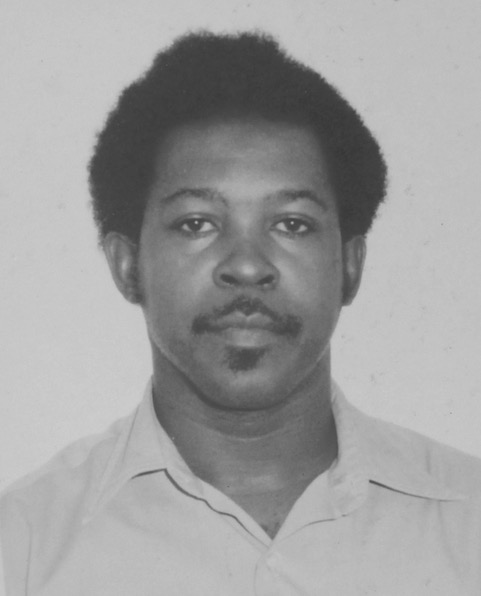MURDEROUS ATTACK ON WIFE
 George Rose
George Rose
This article, written by retired Detective Superintendent George Rose, describes the events surrounding a case of serious domestic violence which occurred in Bermuda over 57 years ago in 1967. In addition to his own personal recollections George also provides excerpts from articles that appeared in the Royal Gazette during the course of this investigation and trial.
INTRODUCTION
This is the true history of a case of domestic violence which occurred in a Bermuda household in 1967. Much has changed during the intervening years between then and now - (April 2024), but it remains a truism that Bermuda continues to struggle in its efforts to contain the social epidemic of abuse against women on the Island. Keeping the issue at the forefront of community awareness is a crucial ingredient of the necessary systemic changes needed through preventive education in the field of public health concerns.
Efforts are ongoing to administer a collective effort to raise awareness in our community. As the Minister of Social Development and Seniors, the Hon. Tinee Furbert, JP, MP said recently, “I urge all residents of Bermuda to continue supporting domestic violence awareness throughout the year. By joining forces and working together, we can ensure that domestic violence will no longer be tolerated in our beautiful island.”
______________________________________________________
At 1.20 p.m. on Wednesday, April 5, 1967 I was on duty having just finished my lunch break at Prospect when I was directed to a house behind the Sunset Lodge on North Shore Road, Pembroke West where, it was alleged, a man was beating his wife.
The entrance door was open and I announced our presence as we entered, shouting loudly “Police, Ambulance anyone here?” Receiving no response, we walked through the front living room into an adjoining hallway where I saw a woman’s broken wrist watch and the broken half of a telephone handset lying on the hallway floor near a bedroom door.
Progressing from the hallway and into a bedroom on the western side of the house I saw a woman lying on her side in a large pool of blood. I went to her and saw she was seriously injured about her face and head. She did not move or respond when I asked her to talk to us. She lay in a twisted fashion on the bedroom floor with her head pointing towards one of the bedroom windows and her feet resting near a damaged paraffin heater lying on its side near the foot of the bed.
I saw a mass of blood around her left eye orbit and I also saw what I concluded to be a human eyeball lying in a small pool of blood on the floor about two feet from her head. I immediately drew the attention of the ambulance crew to the eyeball and later saw the nurse gather it up into a white napkin.
I gathered the infant from the bedroom and followed the ambulance crew and stretcher outside where I spoke with a woman who, I learned, was the mother of the victim. With her agreement, I handed the baby into the care of a female neighbor standing nearby after which I saw the mother accompany her injured daughter in the ambulance to the hospital.
Staying within sight of the apartment door I visited a nearby house and spoke with a neighbour who told me she had seen a man leave the house covered in blood. The man had spoken to her as he left the yard.
Whilst awaiting the CID, I quickly searched the immediate surrounding garden and pathway for anything likely connected with this incident but found nothing.
Upon the arrival of Det. Chief Inspector Sheehy and DS Sheehan I appraised them of what I had seen inside the house and particularly drew their attention to the obvious blood trail on the steps and banister rail leading up to the apartment door. At their request I again searched the totality of the garden area and yard surrounding the house but found nothing of likely evidential value.
The following morning, the Royal Gazette (RG) reported that a 24-year-old Pembroke mother and former teacher at Central School, Mrs. Lena Elizabeth Milner, had had her eye gouged out and was so severely lacerated, mainly about her face that she required over 100 sutures in a two-and-a-half-hour operation. Meanwhile, police had arrested her husband, Wylie John Milner, a U.S. Airman stationed in North Dakota, in connection with the assault.
Although she had lost her left eye, the other eye was all right, said the doctor. Well over 100 sutures had been needed to close the wounds during an operation which lasted two and a half hours. The doctor said that Mrs. Milner would be undergoing skull X-rays.
Mrs. Milner had only recently returned to Bermuda from the United States. Her mother lives in a house just behind the Sunset Lodge.
A friend of Mrs. Milner, who was also a teacher, said that Mrs. Milner had taught at the Central School after returning to Bermuda from teachers’ college. He thought that she had met her husband while he was stationed here at Kindley Air Force Base and that they had gone to Utah together.
The committal came at the end of evidence from the prosecution’s twelfth witness, Joan Elizabeth "Lena Mae" Milner, the wife of the accused. Mrs Milner, wearing sunglasses and her face scarred, stepped from the witness box shortly before 5.30 p.m., after relating events of April 5 when her husband allegedly wounded her.
The complainant’s mother also gave testimony. Evidence was heard from a neighbour and from Dr. John Stubbs, Dr. Elizabeth McKenna, Dr. Terrence John Arthur Wickham and from Gloria Jean Montgomery, a registered nurse at the King Edward Memorial Hospital.
Among other witnesses giving testimony were the following members of the Bermuda Police Force: Det. Sergeant John Sheehan [Investigating officer], Dc Calvin Christopher [SOCO], Pc George Rose [first attending officer], Pc Michael Heelan and Pc Alexander James Forbes.
The Wor. Walter Maddocks presided over the preliminary hearing while P.S. James Moir appeared for the prosecution. Mr. Coles Diel, appeared for Milner.


On Monday, July 10, 1967 one of the ten cases before the Assizes was that of Wylie John Milner (30) who stood smartly in the dock in his United States Air Force uniform.
Milner, represented by Mr. Coles Diel, pleaded not guilty to a charge of wounding with intent and will face trial next Monday. Until then he was to remain in the custody of the U.S. military authorities.
The American airman was charged with grievous bodily harm with intent against his Bermudian wife, Joan Elizabeth Milner, on April 5. Milner pleaded guilty to beating his wife so badly with an oil heater in her North Shore, Pembroke West home that an eye was found on the floor and her face and neck were covered with lacerations measuring six, five and four inches. The tip of her nose was cut and hanging by a piece of skin and a finger had been cut to the bone.
Solicitor General Mr. Anthony Sedgwick outlining the case after Milner changed his plea to one of guilty, said the offence took place at the home of the wife’s mother in Pembroke West. It was on December 31, 1965, the couple were married and the pair went to live at Minot Air Force Base, North Dakota. Last March Mrs. Milner returned to Bermuda after matrimonial problems and a few days later Milner followed her to Bermuda to say he was sorry. Mrs. Milner told her husband that she would return to America with him when her U.S. papers came through.
The couple had been to the US Consul’s office then returned to the mother’s home. The pair were friendly. While she was sitting in the kitchen the phone rang and Milner answered it, telling his wife there was a message from her mother and they should get a bus on the North Shore Road which they did. The wife said she started to go from the room and had taken one or two steps when she felt a hard blow on the back of her head. The next thing she knew she was in her mother’s bedroom and her husband was hitting her about the head with a kerosene heater.
She began to scream for help and she shouted to him saying, “Do not let the baby see me.” Milner did not stop hitting her. She played unconscious but still he did not stop. She told her husband, "Let me see the baby before I die.” Milner carried on hitting her, Mr. Sedgwick said. The wife felt her husband "getting to her eye” and felt his hand on her neck. She remembered nothing further until she was in hospital.
A neighbour had testified she heard cries and went to the house where the baby was screaming. The wife shouted “I'm blind” and a human eye was on the floor. Milner was leaving the house and had told her he had beaten his wife. She called the police.
Mr. Sedgwick then itemized the wife's injuries and said the accused had never explained to the police his behaviour on that evening.
Counsel for Milner, Mr. Coles Diel, said after hearing of the injuries to Joan Milner “one is repelled and would wonder what sort of person would do this to another human being.” He said he was surprised when he met the accused. “I had expected another sort of person.” said the lawyer.
Mr. Diel said that in the lower court he had been restrained in his questioning of the wife by Milner who was anxious about her. Explained Mr. Diel, “I think his attitude was one of someone still in love with his wife.”
Mr. Diel called military witnesses to tell of Milner. Sgt. Ernest Arthur Joas, in charge of personnel records said in Milner’s reports his performance consistently said “exceptional to outstanding.” This was achieved by only about 10 per cent of all enlisted men in the service.
Major James LaBar, a military legal officer said Milner’s future in the service would now "in all probability be terminated” which would cancel out pensions and other financial sources.
Said the officer: “Milner is getting a weekly wage at the moment and was adamant the money should go to the support of his family.”
The Chief Justice was given a lengthy report from Government psychiatrist, Dr. George Campbell-Young, who interviewed Milner on several occasions and [who had] told him of his troubled sexual relationship with his wife.
Mr. Diel said it was this problem which was being discussed prior to the attack and Milner at the time was under extreme strain psychologically and emotionally. His wife had left him with the baby and about $700 and, he claimed, and prior to the attack had told him she was going to have relations with other men in Bermuda to show she was a woman.
Said Mr. Diel, “Milner is a religious man and this must have horrified him.” The lawyer said when Milner finally realized he had done his wife “considerable harm" he went to get help and told a woman what he had done and had asked her to call the police. He got a taxi and went to Hamilton police station. He had “shown remorse” throughout, Mr. Diel said.
The Chief Justice remanded Milner in civil custody until Monday for sentencing.
On Monday, July 24, 1967 the Chief Justice the Hon. Sir Myles Abbott called the “murderous attack” by U.S. serviceman Wylie John Milner on his Bermudian wife one of the “most tragic cases which has come before me.” He sentenced Milner to four years in gaol.
In the Supreme Court, Sir Myles recalled Milner’s outstanding record in the American Air Force and said he had read all the letters from persons who had written highly of him, saying: “It makes it more of a tragedy that you should ruin your career and perhaps your life by losing your temper in this way.”
Sir Myles said surgeons had done wonderful work on the woman’s injuries but were unable to replace one lost eye.
The Chief Justice told Milner – smartly dressed in his uniform and standing at attention – that he considered he had been provoked by the argument which preceded the attack and the fact that his wife hit him in the genitals with a telephone. But Milner’s attack was out of all proportion and the Chief Justice told him, “You went berserk.”'
He said he realized Milner’s wife “was not as cooperative” with him sexually as she might have been and Sir Myles said: “We know in these courts how much distress can be caused by this.”
Milner had pleaded guilty to causing grievous bodily harm with intent.
(Earlier in the Supreme Court, Sir Myles had sent another wife-beater, Eugene Dinsmore Wilkinson, to gaol for 11 months.
He told the man: “I have a report from the government psychiatrist and evidently you have got something of a mental trouble in that you develop illusions about people and also you manage to work up unjustified suspicions about people.”
The Chief Justice said the [mental] complaint made the accused liable to behave more violently.
Before sentencing Sir Myles had said: “This was a very serious attack on your wife. She might well have broken her neck when you threw her over that wall.”)
U.S. airman, Wylie John Milner was appealing his sentence, imposed for wounding his Bermudian wife, Joan Elizabeth Milner.
Milner, said to be one of the Air Force’s top ten-per-cent men, appealed against the sentence imposed by the Chief Justice when he pleaded guilty to a charge of causing his wife grievous bodily harm.
Mr. Coles Diel, representing the appellant, said that Milner and his wife had been through matrimonial difficulties, and she had come to Bermuda from America without his knowledge. He followed her here, said Mr. Diel, and tried to affect a reconciliation. Milner, he said, was provoked by something his wife said and did, and a “whirlwind of emotion exploded inside him, and he went berserk and attacked his wife.”
He did not know what he was doing, and as soon as he realized he called for help for his wife, and gave himself up to the police. Mr. Diel told the court that Milner had ruined his own career in the service, where he was in a position of responsibility.
Mr. A. W. Sedgwick, the Solicitor General, said that the wounding was very serious, and could have cost the woman her life. She lost an eye as a result of the attack.
Giving judgment Mr. Justice Sinclair, President of the Court, said that it was “a very unusual and tragic case. Milner’s standing in the Air Force, and reports on him, showed him to be a man of exceptionally high rating and a stable, reliable character.”
He went on, “Although the Chief Justice took into account, when imposing sentence, the character of the appellant and the fact that his career would be ruined as he would be given a dishonourable discharge, nevertheless we do not consider that the Chief Justice took adequately into account the grave nature of the provocation which precipitated a sudden complete loss of control by one who normally was self-disciplined and restrained in times of stress,” said the justice.
Article published in April 2024.